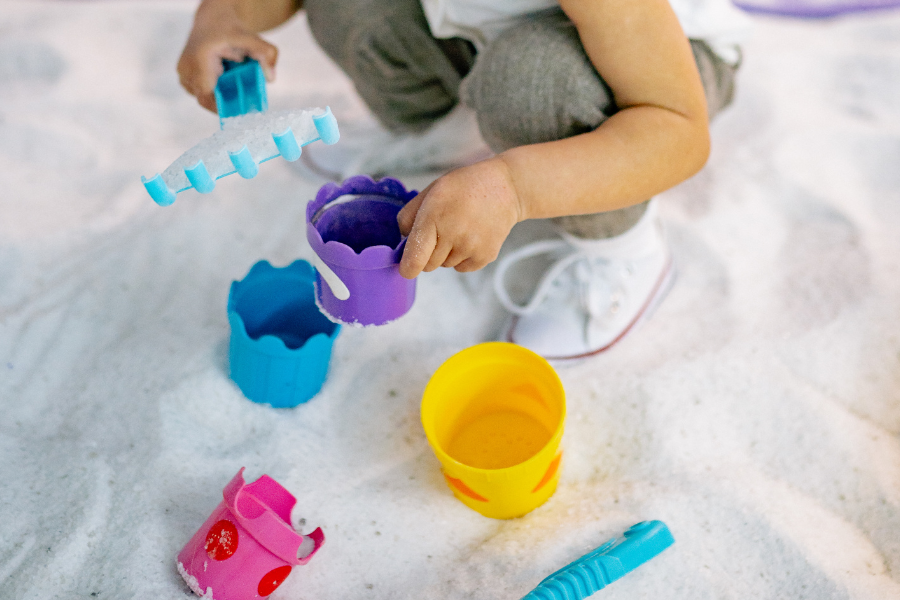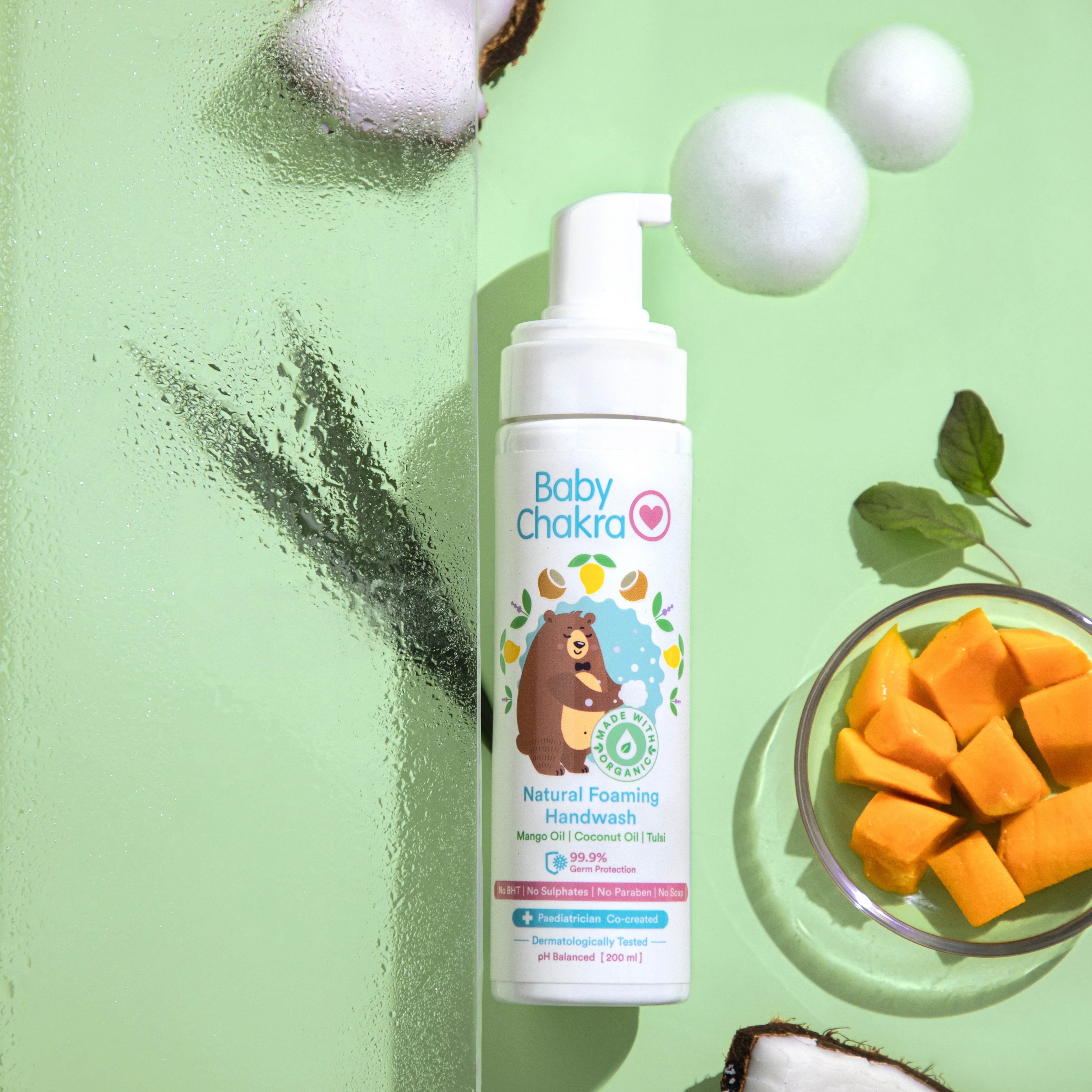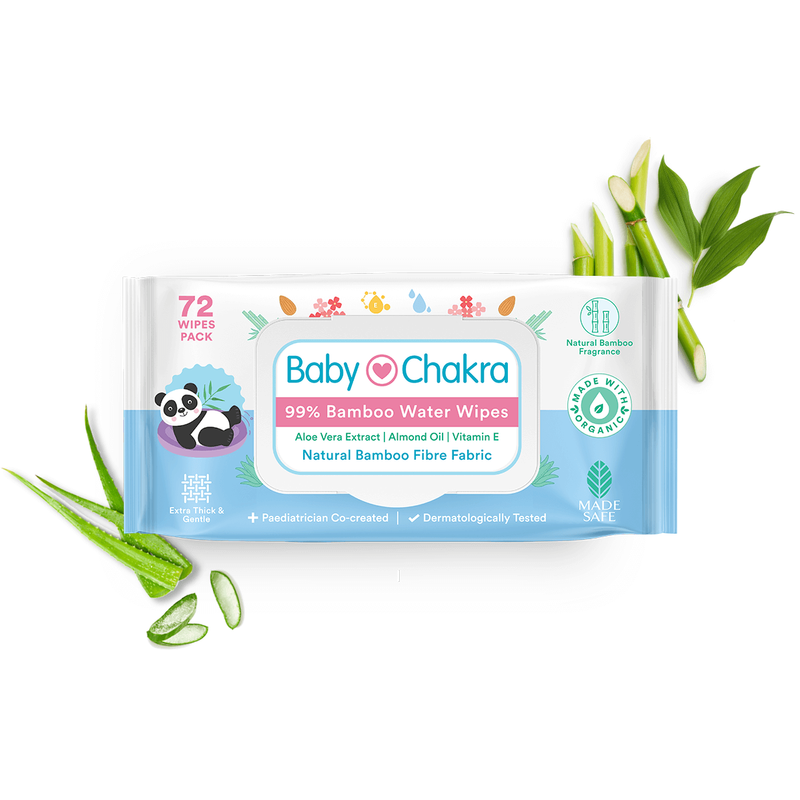
Why Do Toddlers Touch Everything?
21 Oct 2022 | 4 min Read
Reema Shah
Author | 740 Articles
Outdoors with your toddlers and have to tell them several times to stop touching everything? It can get very frustrating for parents as they are constantly worried about their little ones falling ill because of the germs they are likely to attract when they touch things around them.
It’s advisable to keep your toddler’s hands clean with natural baby wipes or a baby-friendly hand wash like the BabyChakra Foaming Handwash, instead of stopping them from touching things. Touching everything helps your child in sensory processing and brain development. Here’s why.
Why Do Toddlers Touch Everything
Find out why your toddler needs to touch everything.
Cognitive Development
Learning via feel and touch feel is called tactile or kinesthetic learning. While adults have the benefit of understanding how they process new information and what helps them remember, toddlers, do not have the same understanding. They require your support to learn and the failure to accommodate these needs can affect learning.
You can boost your child’s tactile learning by giving him or her the freedom to explore, move and play freely in a safe environment. Encourage your toddler to feel assured enough to explore, rather than warning him or her of danger every time.
This means that you can’t have your house look like an interior designer’s showcase. For safety, put baby gates and childproof the areas that have breakables or objects that can harm your child.

Tactile Learning
Your toddler’s active adventuring creates his or her sense of body awareness which is a process called proprioception. Proprioception helps toddlers map their bodies and learn where their body parts are located. It also makes them aware of how the various parts are used to perform different activities. This early learning starts long before even the babies are born.
Proprioception was in action when your toddler was a baby kicking and moving around in your tummy. Furthermore, the learning process does not stop when babies are born, and hence they continue to map out their bodies and surrounding in the world outside.

The tactile learning continues when the baby is breastfeeding, touching your skin during feeding, or kicking their feet in the stroller. Toddlers discover how their body works with every internal or external movement and how the movement interacts with their environment. As your toddler’s motor abilities develop, so does their curiosity and thus they continue this significant task even more boldly.
Tactile learners usually enjoy things like:
- Using fingers to trace over letters and numbers
- Hands-on activities
- Art projects
- Tapping their fingers or feet
- Playing outdoors and moving consistently
Toddler Touches Everything: When Should You Worry
You should not stop your toddler from touching everything in the store. Touching things is not bad, however, it may become a problem if your toddler cannot seem to get enough of it. As per Healthline, a toddler who cannot stop wanting to touch everything may be having Sensory Processing Disorder (SPD). This disorder is a common cause for an increased need for sensory seeking in toddlers and trips outdoors with your toddler may make you feel frustrated.
Hence if you have noticed that toddlers touch everything, remember it’s normal as they are discovering themselves and the world around them. Unless they have the need to touch literally everything all the time, there’s no expert help required.
Cover Image Credit – Canva
A


Related Topics for you
Suggestions offered by doctors on BabyChakra are of advisory nature i.e., for educational and informational purposes only. Content posted on, created for, or compiled by BabyChakra is not intended or designed to replace your doctor's independent judgment about any symptom, condition, or the appropriateness or risks of a procedure or treatment for a given person.


